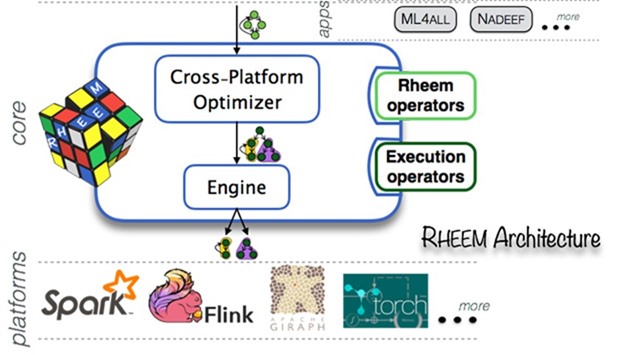The application, Rheem, named after a native gazelle in Qatar, is the first general purpose system capable of what scientists call cross-platform data processing to be launched.
QCRI scientist Jorge-Arnulfo Quiané-Ruiz, who led the development of the software, said as the use and analysis of big data spread, organisations were using different specialised big data platforms to address specific needs.
“For example, social media and customer purchase analytics typically require separate software platforms,” Quiané-Ruiz said.
An airline could use Rheem to mine data from a passenger database to target promotions to customers based on flight history data from information stored in a passenger list. Rheem could then help the airline’s engineers to use this information to schedule extra flight capacity with data stored separately on multiple platforms. Qatar Airways has agreed to test the technology.
Hospitals could use the application to improve patient monitoring. For example, doctors might need to gather information about patients (whose information is typically stored in a database) who have received similar prescriptions, information usually stored in text files.
The oil industry could also use Rheem to analyse structured and unstructured data to improve efficiency. During an exploration phase, for instance, data has to be acquired, integrated and analysed to predict if a reservoir will be profitable.
Quiané-Ruiz said Rheem operated like a platform integrator or coordinator that used a set of rules to decide how to map a request from the application layer all the way down to the right platform. It works in a layered fashion, with the application sitting on the top layer and the bottom layer connecting with a myriad of popular platforms.
“Rheem can decide, for example that for certain tasks PostgreSQL is the right option but for others, distributed platforms like Hadoop or Spark could be more efficient,” Quiané-Ruiz said.
Rheem allows users to easily specify these tasks with easy-to-use interfaces, provides developers with opportunities to optimise performance in different ways and can run on any data-processing platform, such as PostgreSQL, Spark or GraphChi.
The software has been presented to scientists at leading international conferences.

